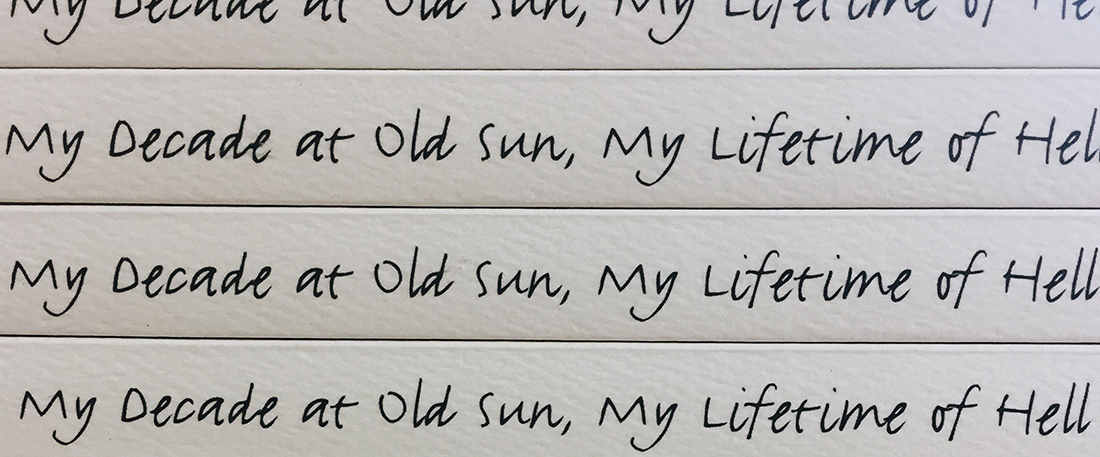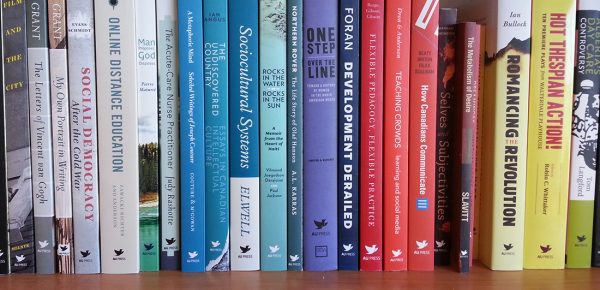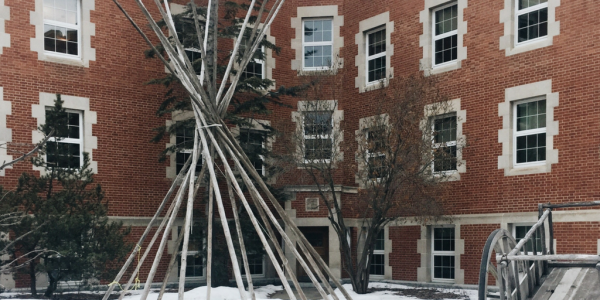In Honouring the Truth, Reconciling for the Future, the Truth and Reconciliation Commission of Canada writes that “Reconciliation is not possible without knowing the truth.” The truth about residential schools, the truth about the survivors in their own words.
AU Press is honoured to be partnering with RISE–Reconciliation in Solidarity Edmonton on the launch of their citywide book club. Together we will be reading Arthur Bear Chief’s memoir, My Decade at Old Sun, My Lifetime of Hell. Scroll down for the who, what, where, and when (and also how to read the book for free).
Who is RISE?
RISE is a group of citizens in the Edmonton region committed to supporting reconciliation in words & actions. They seek to raise awareness about the impacts of residential schools and to encourage conversations about reconciliation in a safe space. They also focus on providing opportunities to learn about Indigenous culture.
Launch event information
The book club will be launched at Edmonton City Hall on Thursday, March 30 at 6 pm. This free event will include a panel discussion featuring Arthur Bear Chief, author of My Decade at Old Sun, My Lifetime of Hell, and Pamela Holway, senior editor at AU Press. The panel discussion will be moderated by Charlene Bearhead, Education Lead at the National Centre for Truth and Reconciliation at the University of Manitoba. You can RSVP here. You will be able to buy a copy of Arthur’s book or pick up a free download card.
About the book club
The book club will run through the month of April. We’ll start by reading the memoir in the first two weeks of April and then we’ll read the afterword and appendices. You’ll be able to join the online discussion on the book club website: http://risebookclub.ca/. It’s currently under construction but will be launched at the beginning of March. Keep your eye on Facebook and Twitter to be the first to hear when it goes live.

About the book
“I am writing this book in hopes that it will help me in my journey of healing and recovery from my abuse at Old Sun Residential School. Everything else I have attempted eventually led me back to myself without any resolution to rid me of my demons. My emotions still overtake me at times, and I sit and cry for myself and many others who are not here—gone, but not forgotten by me. May your spirits guide me in the writing of my book. If your spirit is restless, I hope this book will give you some sense of peace. If that is the case, I too will be at peace with you.” —Arthur Bear Chief
“. . . raw, graphic, and compelling. No two residential school survivor stories are the same, each one bringing us to a deeper understanding of our country and our past failings. Reading this will help you consider our present-day responsibilities and our collective opportunities to set things right.”—Dr. Marie Wilson, Commissioner, Truth and Reconciliation Commission of Canada, 2009–2015
“A courageous memoir and a must-read for everyone brave enough to learn about residential schools. It’s a tough read—triggering and horrific—but it is also laced with light and the power of culture, language, family, traditions, and learning to trust and try again. It is a life’s work and one to be proud of.”—Richard Van Camp, author of Night Moves
“It is important for Canadians to bear witness to all these stories of survival.”—Danielle Metcalfe-Chenail, editor of In This Together: Fifteen Stories of Truth and Reconciliation
Discussion Questions
Here are a few questions to get you thinking as you read Arthur’s story.
- Discuss Arthur’s decision to return to Gleichen late in life. Why did he feel the need to return?
- Some Canadian Indigenous people chose not to participate in the Truth and Reconciliation Commission and have chosen to approach the work of reconciliation with caution. Why might that be? Why did Arthur choose not to tell his story as part of the TRC process?
- How can telling your own story contribute to both personal and communal healing?
- What does reconciliation mean to you?
- Do you think the Canadian government has sufficiently addressed the Calls to Action listed in the Final Report of the Truth and Reconciliation Commission?
- What, as an Edmontonian, is your next step toward reconciliation? What are some of the ways that we can connect words and actions?
Where to buy the book:
- Our website (you can also download the book for free here!)
- Amazon
- Audreys
- Chapters
- At the launch event


